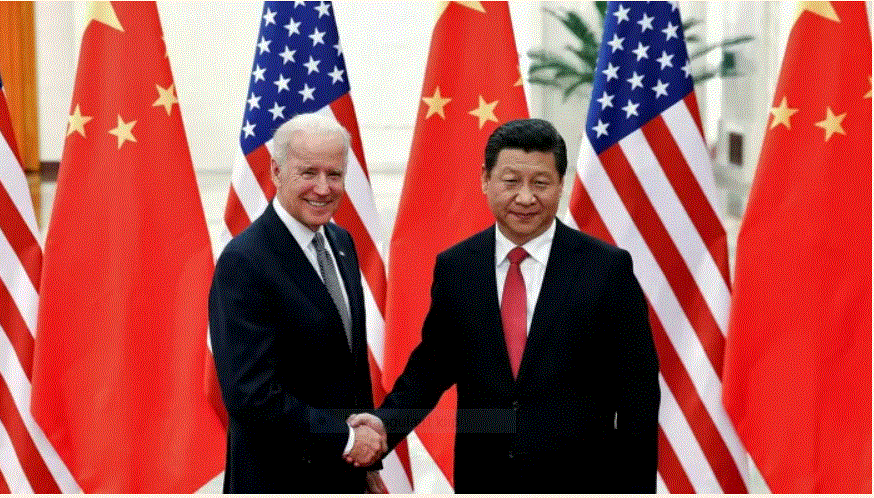Morgan Stanley tolker det seneste møde mellem Joe Biden og Xi Jinping som et skridt på vejen fra “en konkurrerende konfrontation” til en “konstruktiv konkurrence.” Handelskrigen hører næppe op foreløbig, og slet ikke i 2022 med det amerikanske midtvejsvalg. Men begge lande vil indstille sig på en hård og omfattende konkurrence, selv om de økonomisk stadig er og vil blive tæt forbundne. Det giver nye udfordringer for investorerne, for hvad skal de satse på? Vejen kan være banet for en international ekspansion for investering i sektorer, der i stigende grad bruger følsomme teknologier, som i bilsektoren. Det er derfor, konfrontationen kan ende i en konstruktiv konkurrence. Morgan Stanley lover sine investorer, at banken nøje vil følge denne transformation.
A New Normal for U.S./China Relations
This week’s meeting between President Biden and President Xi was not a return to an earlier phase of relations between their two countries. Instead, it suggested the normalization of a sort of ‘competitive confrontation’ that investors and markets may have mixed feelings about.
Earlier this week, U.S. President Biden and China President Xi met virtually to discuss the relationship between their two countries. A broad array of security and economic issues were discussed, and the readouts from both countries following the meeting were generally respectful.
In many ways, this was a marked contrast from the rancor between the two parties for the last few years. Yet investors expressed to us disappointment with the outcome. They were looking for tariff rollbacks and other signs of a reversion to the US/China relationship that preceded the Trump administration. To those investors, our message is that there’s a new normal to embrace for the US and China. And it’s neither wholly positive, or negative, for markets and the economy.
In short, investors should get comfortable with the US/China relationship as one of intense competition, rather than the laissez faire economic competition that the U.S. engages in with its allies. In fact, we call the US/China dynamic a ‘competitive confrontation’.
That means both sides are urgently trying to enact policies that preserve their economic and national security ambitions, without creating chaos through wholesale de-linking of their intertwined economies or direct military confrontation. In short, it’s complicated. But the motivation is high to follow this path. In the U.S., for example, there’s still a bipartisan consensus that the U.S. should be pursuing tougher China policies, and that impulse likely only gets stronger in 2022 – a midterm election year.
So if you know this dynamic, it becomes easier to understand why the U.S. hasn’t moved to reduce tariffs on China, even if that could ease inflation pressures. Even if the Biden administration would prefer those tariffs didn’t exist, they may view reducing them now as short sighted, particularly when they need more time to develop more precise non-tariff tools, and since China continues to fall short on its commitments under the phase 1 trade deal.
So those looking to the US/China dynamic to ease inflation pressures and perhaps reduce bond yields, we think will continue to be disappointed. As will those looking for an easing of export restrictions and other non-tariff barriers that have crimped key equity sectors, like semiconductors.
But it’s not all challenges here. Over time, we think the U.S. and China can get to a dynamic we call ‘constructive competition.’ Both sides will have developed rules of engagement they think preserve their security goals, minimizing trade disruptions and allowing the reduction of blunt force tools like tariffs.
At this point, of course, inflation may have already eased, but the impact could be a clearer pathway for international expansion for equity sectors which are increasingly using sensitive technologies, like automobiles. We’ll be tracking the transition here and report to you as opportunities emerge.











